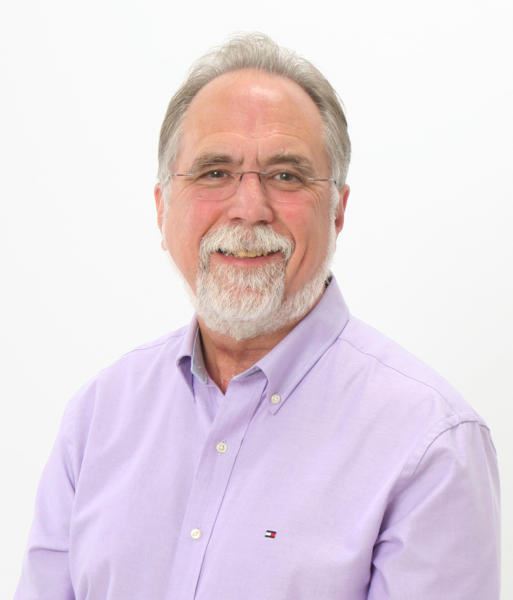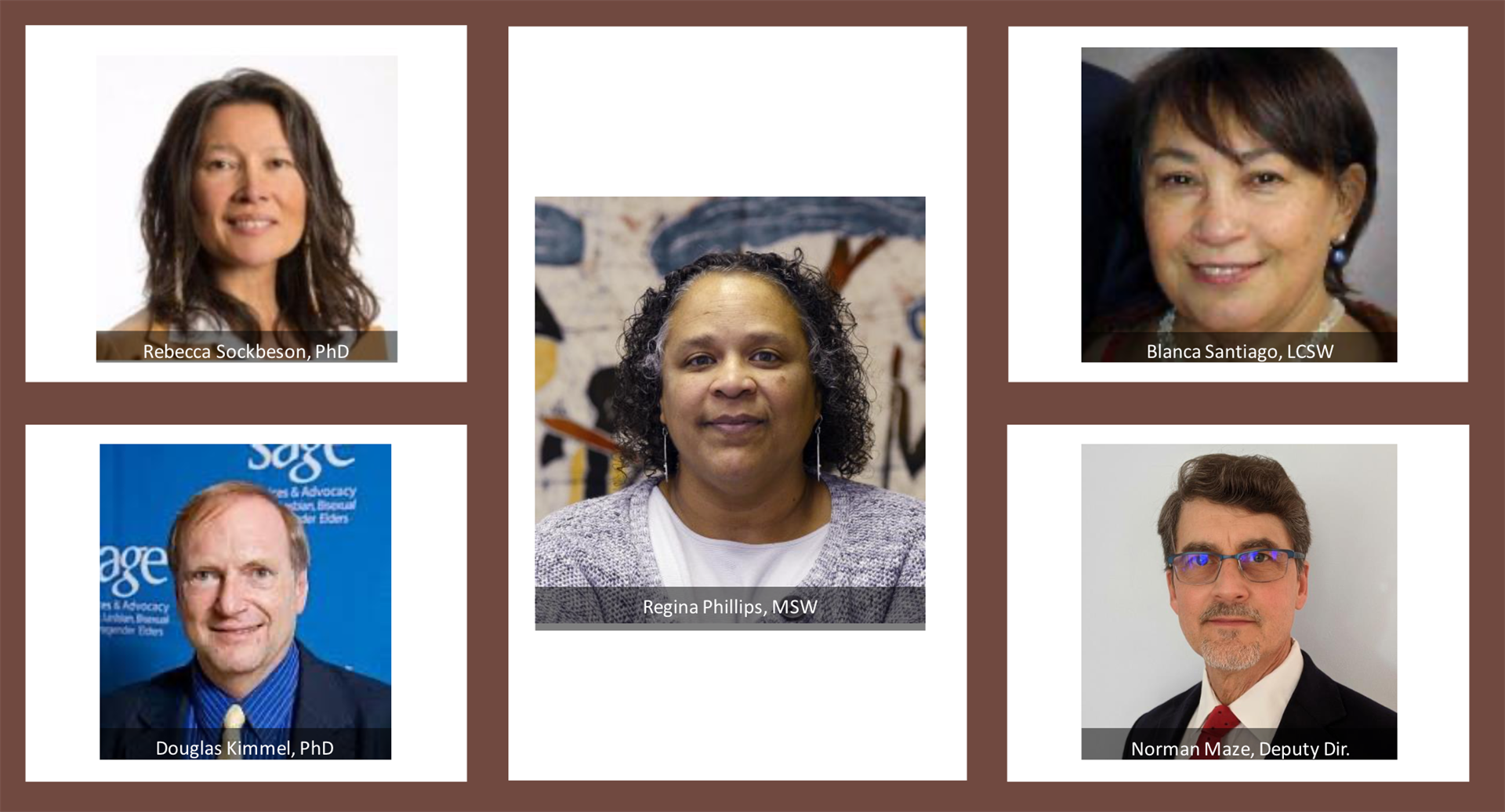Join MePA as a full member at the 50% rate of $155.00, and then register for the conference at the $130 Member rate.

Morning Session (3 CEUs):
The ACT Matrix: Psychological Flexibility Training During the Pandemic and Beyond featuring Kevin Polk, PhD
Agenda
8:00am – 8:15am Opening: President Thomas Cooper, PsyD
8:15am – 8:45am Keynote: APA President Sandra Shullman, PhD
9:00am – 12noon The ACT Matrix (3 CEUs)
12noon – 1:00pm Lunch Break
1:00pm -- 4:00pm Equity, Diversity, and Inclusion Panel (3 CEUs)
4:00pm – 4:30pm Closing & Awards, President Thomas Cooper, PsyD
9:00 am – 12:00 pm
The ACT Matrix: Psychological Flexibility Training During the Pandemic and Beyond
ACT in itself is a powerful method. However, ACT is not necessarily a tool. Traditionally, the six core ACT processes have been presented as a hexagon known as the hexaflex that offers a good conceptual description of how ACT works. Of course, there’s a big difference between concepts and actions. And when people (clinicians included) are stuck, they rarely need concepts; they need skills.
There is no learning curve with the Matrix Method. There is no extra level of compliance needed to administer it in a session. The reason the Matrix Method works so well is because it is simple and almost defies science. Unlike the ACT Method, or Exposure Therapy, or RFT, or Cognitive Therapy, the Matrix Method can be used with anyone in any setting.
Objectives:
- Participants will learn how to engage people in a values-based workability process.
- Participants will learn how to use perspective-taking to defuse verbal entanglement and increase psychological flexibility.
- Participants will learn simple ways of practicing verbal aikido.
- Participants will explain the basic philosophy and theory at the root of Acceptance and Commitment Training and Therapy.
- Participants will demonstrate how to enhance present-moment awareness using noticing practice.
Bio:
Dr. Kevin Polk was born in Texas and was mostly raised in Shawnee, Oklahoma. He attended high school in Oklahoma City, attended Oklahoma State University for many years, and somehow ended up with a Ph.D. In Clinical Psychology. He worked at the Togus VA in Maine, managing a series of PTSD programs. While dabbling with Acceptance and Commitment Therapy (ACT) as a form of in-vivo exposure, in 2009, he stumbled upon the ACT Matrix as a way of quickly engaging people in the ACT psychological flexibility process. In 2011 he stumbled some more and came up with the ProSocial Matrix while working with David Sloan Wilson’s “Neighborhood Project” in Binghamton, NY. (The ProSocial Matrix targets increasing psychological safety in workgroups.)
There have been two “ACT Matrix” books published, with a third to be out soon. Kevin is semiretired and cohosts an online show called “Matrix Talk.” He enjoys spending time with his wonderful wife and hearing about the adventures of his three grown children and two granddaughters. His family includes four dogs, one cat, two goats, and about 500,000 honeybees. Since age five or so, he’s been working at becoming a handyman, with varying degrees of success.
Please click below for full agenda:
MePA Annual Conference Agenda 2020 (1).pdf
Afternoon Session (3 CEUs):

Equity, Diversity and Inclusion Panel: Listening Session supporting the Psychological Resilience of Underserved Communities featuring Blanca Santiago, LCSW, Family Resource Specialist Multilingual & Multicultural Center and Norman Maze, Deputy Director and Housing Director at Shalom House, Inc.
To register for panel only, please click here.
Panel Agenda
1:00pm - 4:00pm
Equity, Diversity and Inclusion Panel: Listening Session supporting the Psychological Resilience of Underserved Communities
4:00pm – 4:30pm
Closing Remarks and Awards, President Thomas Cooper, PsyD
Bios
Regina Phillips, MSW is the co-founder and Chief Operations Officer for Cross Cultural Community Services, an organization that provides diversity, equity, and inclusion work, along with cultural awareness and humility consultation. Ms. Phillips is an adjunct professor at the University of Southern Maine School of Social Work and also works at the Westbrook School Department as the Equity Resource Coordinator. She was previously Program Manager for the City of Portland Social Services Division Refugee Services program for 12 years and ran their homeless family shelter for 7 years. Ms. Phillips serves on the Coastal Enterprises, Inc. Board of Directors and recently finished her two-terms (6-years) on the board of United Way of Greater Portland. Ms. Phillips was a member of the Greater Portland NAACP branch for over 10 years where she served on the Executive Board and as Chair of the Education committee. Ms. Phillips grew up in Maine, received her undergrad from Curry College in Milton, MA, her Master of Social Work from UNE, and is enrolled in the Doctor of Social Work program at Tulane University.
Douglas Kimmel, PhD, is Professor Emeritus, City College, C.U.N.Y., where he taught in the Department of Psychology from 1970 until 1999 (including three visiting professorships in Tokyo, Japan). In 1975 he began a research project on older gay men, finding that they were a varied group, including some in long-term relationships, and many who were well-adjusted and aging successfully. In 1997 he and Clarence Adams conducted a similar study with African American older gay men. He was a co-founder of SAGE (Services and Advocacy for GLBT Elders) in New York City in 1977, and SAGE Maine in 2013. He had an independent psychology practice in Hancock, Maine, until retiring in 2014. He served as Chair of the MePA Committee on Peace & Social Justice for several years and has been active in many roles in the American Psychological Association. His website is: www.tamarackplace.com/kimmel.
Blanca Santiago, LCSW, has spent three decades developing visibility, safe spaces, and resources for the Latinx and immigrant communities in Maine. She is the 2020 recipient of Courage is Contagious Award. Ms. Santiago currently serves as a Family Resource Specialist in Portland Public Schools, working to support vulnerable families and individuals in direct service capacities. She serves on the Boards of ILAP, Cross Cultural Communications Services, and Presente!Maine. The latter is the newest women led Latinx organization serving the social justice, basic and aspirational needs of her community.
Norman Maze, Deputy Director at Shalom House, Inc., began his tenure in 1997 as a Residential Support Worker at two of the agency’s supported housing programs. He later transferred to the Property Manager position, then Housing Director in 2010, and Deputy Director in 2018. Norman oversees the agency’s portfolio of 27 residential properties from group homes to apartment buildings. Over the past several years, he has become actively involved with statewide and local homelessness policy work. Norman currently serves as one of the tri-chairs for the Maine Continuum of Care, a group of statewide organizations, from emergency shelters to community providers, working to address the causes and impacts of homelessness for the most vulnerable. Norman also serves on the board of Amistad, Inc., an organization which addresses the needs of individuals living with mental illness, substance use, homelessness, and poverty using street outreach, recovery housing, and peer support centers.
Dr. Rebecca Sockbeson is of the Penobscot Indian Nation, Indian Island, Maine, the Waponahki Confederacy of tribes located in Maine, United States and the Maritime provinces of Canada. She is the 8th child of the Elizabeth Sockbeson clan, the auntie of over 100 Waponahki & Stoney Sioux youth and the mother of three children who are also of the Alexis Nakota Sioux First Nation of Alberta. A political activist and scholar, she graduated from Harvard University where she received her master’s degree in education. She went on to confer her PhD in Educational Policy Studies at the University of Alberta, specializing in Indigenous Peoples Education. Her research focus is Indigenous knowledge, Aboriginal healing through language and culture, anti-racism and decolonization. Her doctoral study engages with how Indigenous ways of knowing and being can inform policy development. She currently serves as Associate Professor for the University of Alberta’s Indigenous Peoples Education Program. In 2013, she and her Indigenous colleagues received a University of Alberta Human Rights Teaching Award for her role in coordinating and teaching Alberta’s first compulsory course in Aboriginal Education, EDU 211: Aboriginal Education & the Context for Professional Development. Sockbeson's poem, “Hear me in this concrete beating on my drum,” was a winning entry in the Word on the Street Poetry Project in 2018 and is sandblasted on a downtown Edmonton sidewalk as part of a permanent public art installation.
PUBLICATIONS
Sockbeson, R., Weber-Pillwax, C., Sinclair, J., Louis, C., & Auger, S. (2018). Red Hope Pedagogy. Cultural and Pedagogical Inquiry, 10 (2), 50-57.
Sockbeson, R. (2017). Indigenous Research Methodology: Gluskabe's Encounters with Epistemicide. Postcolonial Directions in Education, 6 (1), 1-27.
Sockbeson, R. (2017). Waponahki Anti-Colonial Resistance in North American Colonial Contexts: Some Preliminary Notes on the Coloniality of Meta-Dispossession. In D. Kapoor (Ed.), Against Colonization and Rural Dispossession (1st ed., pp. 28-42). London, UK: Zed Books.
Sockbeson, R. (2016). Honored and Thriving: The Squaw Law and Eradication of Offensive State Place-Names. American Indian Culture and Research Journal, 40 (2), 123-138.
Sockbeson, R. (2016). Reconciliation in the Face of Epistemicide. Canadian Journal of Native Education, 38 (2).
Sockbeson, R. (2011). Cipenuk red hope: Weaving policy toward decolonization & beyond. PhD dissertation, University of Alberta.
Sockbeson, R. (2009). Waponahki intellectual tradition of weaving educational policy. Alberta Journal of Educational Research, 55 (3), 351-364.
SPONSORED BY:
